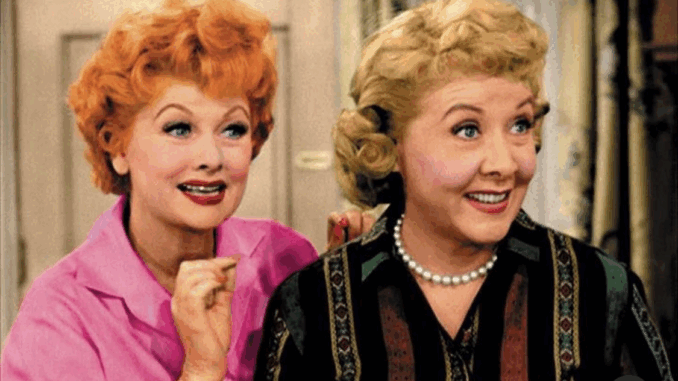
By the time I Love Lucy reached its fourth season, the show had matured beyond its slapstick beginnings to explore more complex and heartfelt themes, particularly surrounding family dynamics and the evolving role of women in post-war American society. Season 4 stands out as a pivotal moment in the series, reflecting not only the personal growth of its characters but also the cultural shifts of the era.
One of the most groundbreaking developments of Season 4 was the incorporation of Lucille Ball’s real-life pregnancy into the storyline. In episodes like “Lucy is Enceinte,” the show candidly and humorously addressed pregnancy—an uncommon and somewhat taboo subject on television at the time. This bold narrative choice resonated deeply with viewers, as it brought authenticity and warmth to the screen, portraying Lucy Ricardo as not just a mischievous wife but a mother-to-be navigating the joys and anxieties of impending parenthood.
This season also delved into the evolving dynamics of Lucy and Ricky’s marriage, showcasing their mutual support, occasional conflicts, and the challenges of balancing careers and family life. Unlike many contemporary sitcoms, I Love Lucy portrayed marriage with a sense of realism, embracing both the humor and the tenderness inherent in a long-term relationship.
Additionally, Season 4 subtly engaged with larger social conversations about gender roles. While Lucy retained her signature spirited and independent personality, the show also reflected 1950s expectations of women as homemakers and caregivers, creating a nuanced portrayal of femininity during this transformative period in American history.
Beyond family and social themes, Season 4 continued to deliver classic comedic moments, blending heartfelt storytelling with the beloved humor that had made the show a staple in millions of homes. This delicate balance of depth and laughter helped solidify I Love Lucy not only as a comedy but as a cultural touchstone that mirrored real-life experiences.
